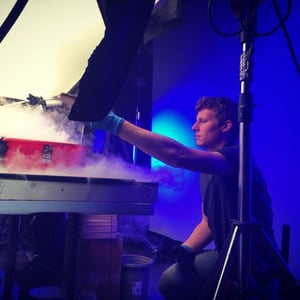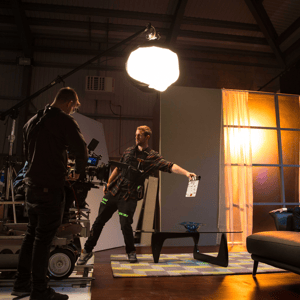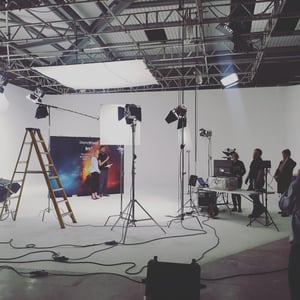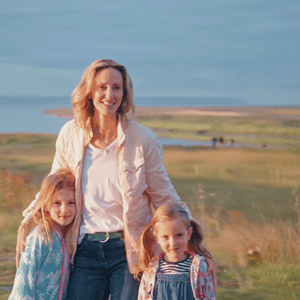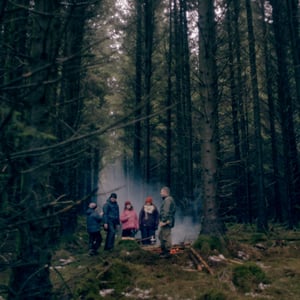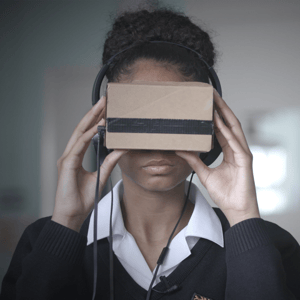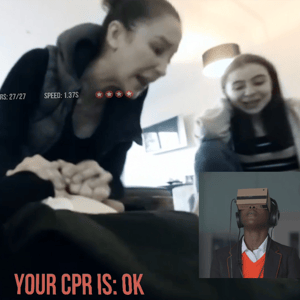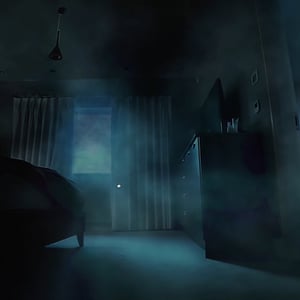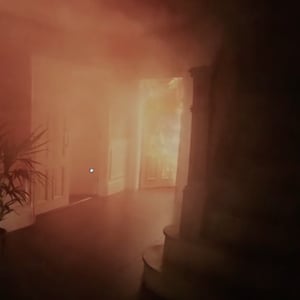Today, our online habits are transforming the way we consume video content, whether in blockbuster productions or the advertising industry.
Five long years ago, David Lynch lamented the future of filmmaking and voiced his concerns for the big screen, announcing:
"Television is way more interesting than cinema now. It seems like the art-house has gone to cable."
While Lynch is of course a creative genius, we doubt he knew just how astute his comment would be in years to come. In fact, the days of cable TV came and went too. Online streaming platforms such as Netflix are leading a transformation in film entertainment, while social channels like Instagram are fast evolving to offer more video content than ever.
Sorry Lynch, but we don’t think it’s time to mourn the industry just yet. In fact, there’s plenty to get excited about! Here’s how we see filmmaking trends changing in 2019, and what we think this means for the video production industry at large.
1. The world loves our localised content
Looking for something new to watch? You’re in luck. Over the next five years, it’s estimated Netflix and Amazon will spend an annual total of more than $20 billion on original content, while Apple and Facebook are also taking steps to invest in their own projects.
With this, we’re seeing a shift from national broadcasting traditions to extensive distribution across global networks – and our charming British accents are doing us a world of good. UK TV production companies generated record revenues of £2.7 billion in 2017, with much of this attributed to overseas sales of high-end dramas such as Victoria and Sherlock.
Authentic storytelling can transcend borders, and there’s now a growing demand for British content across the world. However, demand has always been strong for locally produced content in the UK. Audiences connect with stories told in their own voices, and set in their own cities or countryside. This is the case not only in TV and film, but advertising too!
The Gate has helped to capture numerous British locations on film. Our directors have sprinted across London with New Balance, sashayed around town with Manchester Arndale and even rolled our sleeves up at Lewisham and Greenwich Hospital for the trust’s NHS charity single! Come rain or shine, we love shooting in the UK and creating great content.
2. The UK will be a major filmmaking hub
The UK’s audio-visual sector is already the largest in Europe, and the second largest globally after the US. Renowned for high production quality standards, a long history of storytelling and plenty of famous talent, the UK film industry also offers an obvious language advantage for US companies.
According to the TV and film trade association Pact, Netflix and Amazon spent £150 million in 2017 on British-made television shows such as Black Mirror and The Crown. The following year, Netflix doubled its budget for original content in Europe to $1 billion, and Amazon, Sky and HBO are also ramping up their investments in the European market.
As a result of this surge in popularity, there are already shortages of production studios in the UK being announced. Will 2019 be the year we have to build much more capacity? Luckily, we have The Foundry on hand to suit all our filming needs.
3. Audiences engage with emotional filmmaking trends
Filmmaking – whether it’s working to direct something wondrous through a lens or produce someone else’s masterpiece – is a truly emotional process.
As you’ll have likely seen during the latest season of Christmas adverts, creating emotive content is increasingly seen as one of the best (and most profitable) ways to endear brands to consumers. When it comes to the future of filmmaking for commercial purposes, expect to see brands team up with documentary makers to transform their storytelling potential.
Filmmaking trends are increasingly leaning towards engaging concepts – just consider Bandersnatch, the fascinating new interactive film by Netflix, which allows viewers to choose between multiple endings. Increasingly, viewers want to feel a part of the action.
As a result, many producers are looking into making more engaging and intimate video content, many going beyond the confines of professional film studios to do so. By working with a documentary maker rather than scripted advertising, its possible to get to the true heart of the matter – and to make content you actually want to watch.
Take our own ‘wandering director’ Simon Mulvaney for instance, one of our most talented and loved filmmakers. Travelling the world with his camera, he’s filmed powerful stories of inspirational people that have attracted hundreds of thousands of views online. His recent video advertising campaign for Eurocamp followed real families on their holiday adventures, capturing intimate insights of their time spent at parcs across Europe.
Our talented director Simon Neals also adopted a similar down-to-earth documentary style for Land Rover. This followed real-life family the Roebucks through an adventurous week spent outdoors in winter, with the help of a Land Rover Discovery Sport.
4. The future of filmmaking goes virtual
Virtual reality (VR) is still very much an emerging filmmaking trend, but in 2019 it is expected to grow exponentially. According to Statista, the global economic impact of virtual and augmented reality is predicted to reach $29.5 billion by 2020.
Projected within the safe confines of a headset, these virtual environments offer limitless potential, and practically any industry can create content to connect with consumers. The technology can entertain, instruct and educate audiences in a whole new way.
Our very own BAFTA-winning Martin Percy isn’t shy about using new kit, and has been especially proficient with VR filming, as seen in his campaigns which range in subject from safaris to fire safety. Thanks to the latest production technologies, Martin is able to make the imaginary a reality, all within a safe environment.
“With VR, we’re not trying to make a film which people are watching on a VR headset,” he explains. “We’re trying to give people a sense that they are, in some magical way, actually present in some fascinating or exciting location."
When Harte Hanks Philadelphia approached the Gate on behalf of their client, ADT Home, Percy came up with a 2-minute VR 360 film which places viewers in a house fire scenario. This serves to safely immerse viewers in an otherwise life-threatening situation using visual and auditory cues, and to promote the security of ADT safety products.
Expect a lot more creatives to follow Martin’s lead and tell their stories though VR, shaping the future of filmmaking into one which can almost be reached out to and touched.
